Text
what's the right thing to do ?
This is a summarized form of the concept of Utilitarianism ( context : Justice with Michael Sandel )

01 THE MORAL SIDE OF MURDER
There’s a challenging ethical dilemma: if faced with the decision, would you sacrifice one person to save five others? This sets the stage for a deeper exploration of moral reasoning. Through presenting variations of this scenario, each designed to complicate the moral choice further, our moral intuitions can lead to contradictory conclusions. The exercise reveals the complexity of ethical decision-making and the difficulty of defining right and wrong in absolute terms. Students actively participate, defending their diverse decisions, highlighting the nature of moral reasoning and the importance of examining the principles that guide our judgments.


Utilitarianism, a moral philosophy proposed by Jeremy Bentham, a gripping 19th-century legal case of shipwrecked sailors as a discussion point. After being lost at sea for 19 days, the crew, driven by desperation, decides to kill and eat the weakest among them, the cabin boy, to survive. This harrowing story prompts a debate on the Utilitarian principle of maximizing happiness or welfare across society — often simplified to “the greatest good for the greatest number.” The case challenges students to consider the moral weight of actions aimed at survival against the backdrop of Utilitarian ethics, sparking discussions on whether the pursuit of the greatest overall happiness can justify actions that harm individuals.
02 PUTTING A PRICE TAG ON LIFE
Jeremy Bentham’s utilitarian philosophy, which promotes the idea of achieving the greatest good for the greatest number of people, is a concept still applied in contemporary society, notably in the form of cost-benefit analysis. This approach often involves assigning monetary values to human lives to guide significant business or policy decisions. However, this method raises ethical concerns, particularly about whether it’s just to prioritize the preferences of the majority, especially when those preferences might lead to unfair or harmful outcomes for minorities or when the majority’s values are questionable.
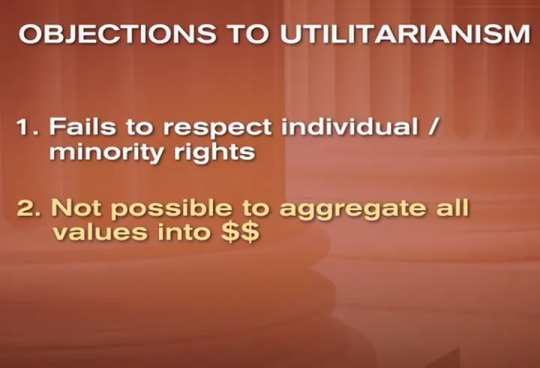
To engage with Mill’s theory, interactive examples, such as showing video clips from “The Simpsons,” the reality TV show “Fear Factor,” and Shakespeare’s “Hamlet,” to spark a debate among students about which of these represents the highest form of pleasure. This exercise is designed to make students consider Mill’s distinction between higher and lower pleasures and to reflect on how these concepts influence our understanding of happiness, value, and justice in society. The discussion aims to challenge students to think critically about the application of Utilitarian principles and the implications of valuing certain types of experiences over others in the pursuit of the greater good.
03 FREE TO CHOOSE
Libertarians advocate for minimal government intervention in people’s lives, emphasizing the importance of individual freedom and choice. Robert Nozick, a key figure in libertarian philosophy, believes that individuals have the right to live as they choose without government interference. This includes opposition to laws aimed at protecting individuals from their own actions, enforcing moral standards, or redistributing wealth from the affluent to the less well-off. Nozick uses high earners like Bill Gates and Michael Jordan as examples to argue that taxing the wealthy to fund social programs for the poor peoples to forced labor, as it compels individuals to work for the benefit of others against their will.
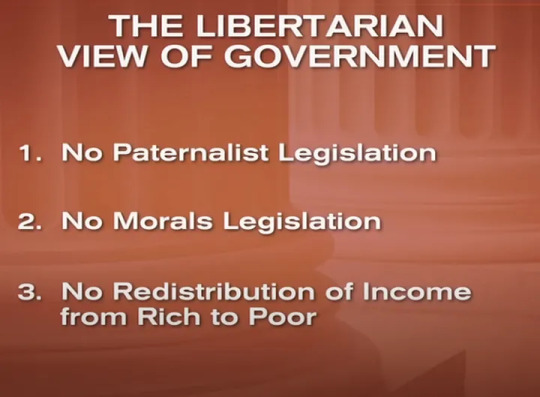
In this context, students are encouraged to engage critically with libertarianism. A group named “Team Libertarianism” is tasked with addressing these critiques, defending the libertarian stance against redistributive taxation and government intervention. The discussion explores the balance between individual rights and societal obligations, questioning the extent to which government should play a role in ensuring a fair distribution of resources and opportunities within society.
04 THIS LAND IS MY LAND
John Locke, a prominent philosopher, argued that every person inherently possesses certain rights that are inalienable, meaning no government has the authority to strip them away. These rights, which include the right to life, liberty, and property, exist in what he described as the “state of nature,” a period before the formation of governments and laws. Locke believed that these natural rights are underpinned by natural law, understandable through reason, which dictates that these rights cannot be surrendered or forcibly taken from another.
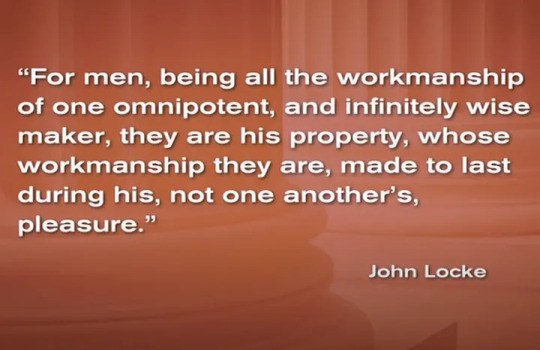
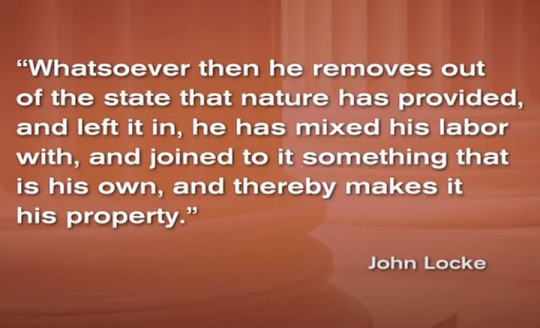
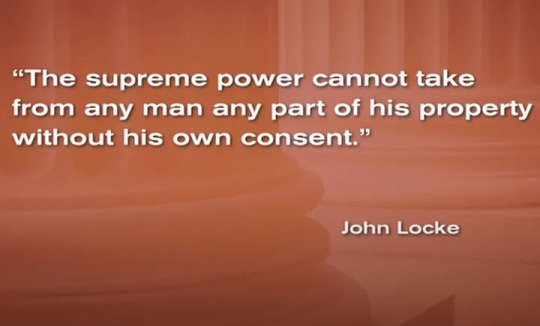
The question then arises: What happens to these natural rights when we agree to live within a society governed by laws? How does this social contract affect our rights, especially when faced with governmental actions like taxation, which could be seen as infringing on our right to property?
Locke’s answer lies in the concept of “tacit consent.” He suggests that by choosing to live within a society, we implicitly agree to abide by the laws and decisions made by the majority, including tax laws. This tacit consent to the system of governance and its laws means that taxation, provided it is fairly applied to all members of society without unjust discrimination, is a legitimate exercise of governmental power. It does not infringe on individual rights but rather is a part of the social contract we enter into, acknowledging that certain personal freedoms may be limited for the benefit and functioning of society as a whole.
05 HIRED GUNS
During the Civil War, people were drafted to join the military but had the option to pay someone else to go in their place. This situation brings up a debate on whether this was truly a choice or if it was more about force, especially since it often appealed to those in financial need from lower social classes to become substitutes. This historical example sparks discussions in classrooms today about modern military recruitment. There’s a question of whether today’s military, which is said to be voluntary, is truly so when many recruits come from poorer backgrounds. The debate extends into what patriotism means and whether there’s a duty for citizens to serve their country.
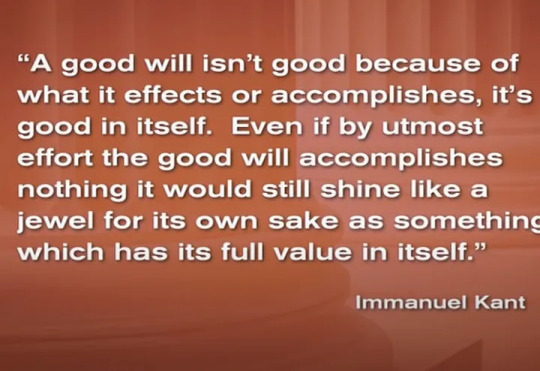
The conversation also explores how free-market concepts apply to issues like reproductive rights today, specifically through the lens of sperm and egg donation as a form of business. The discussion goes deeper with the case of “Baby M,” where Mary Beth Whitehead agreed to be a surrogate mother for a fee but then decided she wanted to keep the baby after birth, leading to a legal battle. This case opens up debate on the ethics of treating human life as a commodity, the complexities around consent and contracts in such situations, and the significance of maternal rights. These topics encourage critical thinking about the intersection of economics, law, and ethics in contemporary society.
06 MIND YOUR MOTIVE
Immanuel Kant was a philosopher who believed that what sets humans apart from animals is our ability to reason and make choices freely. According to Kant, our actions are truly valuable and moral when they are done out of a sense of duty and for the right reasons, rather than for personal gain. For example, a shopkeeper who chooses not to cheat a customer. If the shopkeeper’s honesty is driven by concern for his reputation or business rather than by principle, Kant would argue that the action isn’t morally commendable. Kant’s view is that moral actions stem from doing what’s right simply because it’s right.


Kant’s philosophy emphasizes that our deeds are morally right when they’re done for noble reasons, not just to benefit ourselves. This idea is illustrated through the story of a 13-year-old boy who, after winning a spelling bee, admitted to a mistake he made during the competition. This act of honesty, even when it could have cost him his victory, serves as an example of Kant’s ideal of ethical behavior. Kant suggests that when we’re faced with a decision, we should consider whether the action we’re about to take would still be right if everyone did the same. He asks us to think about whether our actions could serve as a universal rule for everyone to follow, highlighting the importance of intention and principle in our decisions.
07 A LESSON IN LYING
Immanuel Kant believed strongly in always telling the truth because he thought lying takes away a person’s honor. However, people question his belief by imagining a situation where telling the truth could harm someone. For example, if a friend is hiding in your house from a dangerous person who then comes to your door asking if your friend is there, what do you do? This raises the question of whether it’s okay to give answers that are technically true but meant to mislead, like how former President Clinton carefully chose his words to avoid admitting his affair with Monica Lewinsky without outright lying.
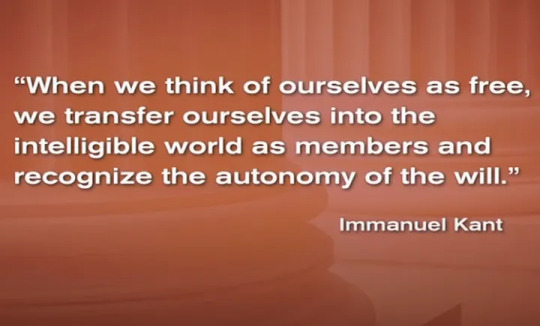

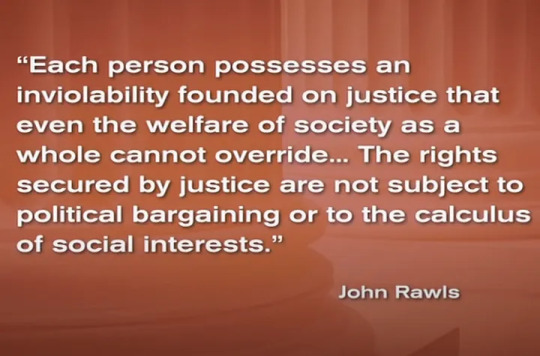
John Rawls, another philosopher, talks about how to make fair and just rules for society. He suggests pretending that everyone making these rules doesn’t know anything about themselves — like their wealth, race, or what they want. This idea, called the “veil of ignorance,” is supposed to make sure that the rules they come up with are fair for everyone. Rawls believes that this is the best way to ensure fairness and justice in the laws that govern us.
08 WHATS A FAIR START?
John Rawls introduces his influential concept of the “veil of ignorance” as a way to think about justice and fairness in society, particularly regarding social and economic equality. Rawls suggests imagining a scenario where individuals make decisions about the rules of society without knowing their own position within it. This means not knowing whether they would be rich or poor, advantaged or disadvantaged. Rawls theorizes that under these conditions, people would likely choose a system that minimizes risks for everyone by ensuring a more equitable distribution of wealth. The idea is that without knowing one’s future status, people would prefer a safety net that protects all citizens from the worst forms of poverty and inequality.

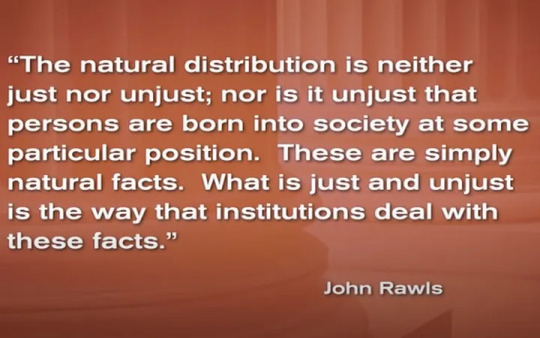

The three main theories of how society should distribute income, wealth, and opportunities: libertarianism, which emphasizes freedom from government intervention; meritocracy, which justifies inequalities based on talent and effort; and egalitarianism, which advocates for a more equal distribution of resources. Adiscussion on the fairness of pay differentials, illustrated by comparing the salaries of Justice Sandra Day O’Connor and television personality Judge Judy. This disparity raises questions about the fairness of income distribution and what constitutes just compensation.
John Rawls’ perspective that many factors contributing to personal success, such as luck, genetics, and family background, are beyond an individual’s control. This challenges the notion that wealth and status are always earned through merit. The role of effort and how society should value hard work, especially when effort is combined with circumstances outside one’s control. This discussion encourages students to think critically about the principles that should guide the distribution of wealth and opportunities in a fair and just society.
09 ARGUING AFFIRMATIVE ACTION
In the discussion on affirmative action and college admissions, students struggle with the fairness and implications of considering race and ethnicity as factors in the selection process. This debate centers around whether such policies are just, whether they infringe upon individual rights, and how they compare to other admissions preferences, like those given to exceptional athletes. Supporters of affirmative action argue that promoting diversity within educational institutions is a valid and essential goal, contributing to a richer learning environment and helping to redress historical inequalities. On the other side of the argument, some contend that admissions should be based solely on a student’s efforts and achievements, emphasizing merit and the individual’s accomplishments without regard to race or ethnicity. This debate touches on fundamental questions about equality, meritocracy, and the role of educational institutions in society.


Aristotle’s perspective on justice, which emphasizes giving people what they deserve based on their virtues and merits. Aristotle’s view requires considering the purpose or the end goal of what is being distributed — whether it be wealth, opportunities, or positions in society. According to Aristotle, justice involves matching individuals’ virtues and capabilities with the roles or resources they receive. This notion suggests that different criteria might be relevant for different kinds of distribution, depending on the goals of the institution or society in question. For example, when it comes to education, one could argue that the purpose of a university is not only to reward past achievement but also to cultivate a diverse and vibrant community that prepares students to contribute to a pluralistic society. This perspective can provide a framework for considering affirmative action policies, weighing the goal of diversity against the principle of rewarding individual achievement.
10 THE GOOD CITIZEN
Aristotle’s theory of justice, which emphasizes aligning distribution with the purpose or end goal of an activity, provides an interesting lens through which contemporary debates, such as the case of Casey Martin and the PGA, can be examined. Casey Martin, a professional golfer with a disability that impairs his ability to walk golf courses, requested to use a golf cart during tournaments, a request that sparked controversy and debate. Students use Aristotle’s framework to debate whether the PGA’s decision to initially deny Martin’s request was just, focusing on the essential purpose of golf. Is the physical walk between shots an integral part of the competition, testing a golfer’s endurance and skill, or is the true test of golfing ability found in the skill of making the shots themselves? This discussion revolves around how closely the rules and accommodations in sports should align with their fundamental objectives and the nature of fair competition.

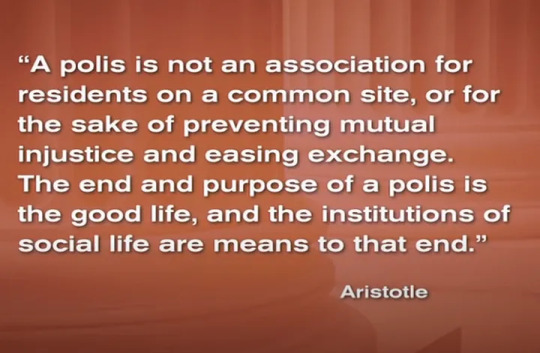
A critical aspect of Aristotle’s philosophy that poses a significant challenge to modern sensibilities: Aristotle’s defense of slavery. Aristotle argued that some people were naturally suited to be slaves, a viewpoint that starkly contrasts with contemporary understandings of freedom and equality. This part of Aristotle’s thought leads to broader discussions among students about potential limitations and objections to his philosophical framework. Students debate whether Aristotle’s views inherently limit individual freedom or if his ideas on justice and the good life can be separated from his acceptance of slavery. This conversation encourages a critical examination of how historical philosophical theories apply to modern contexts, questioning the extent to which Aristotle’s ideas on virtue, purpose, and justice can inform contemporary ethical debates without endorsing his more problematic positions.
11 THE CLAIMS OF COMMUNITY
The objections of Immanuel Kant and John Rawls to Aristotle’s views, emphasizing the importance of individual freedom and the ability to choose one’s own path in life. This leads to a discussion on the communitarian view, which considers how individuals balance their obligations to family, community, and country.

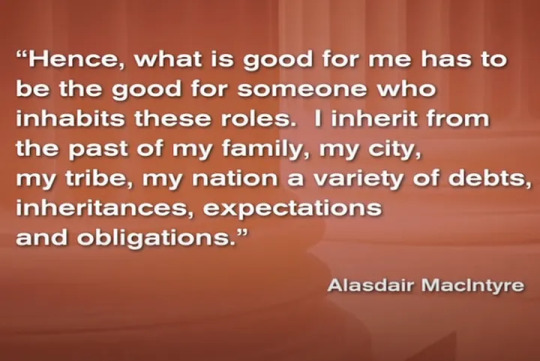
The debate focuses on the tension between loyalty to family or smaller communities and duties to the broader society. Students discuss various scenarios to determine when loyalty might outweigh broader societal duties, engaging with the ethical dilemmas of balancing personal connections against commitments to justice and the common good. The conversation aims to deepen understanding of the principles guiding moral decisions and the complex interplay between personal loyalties and societal responsibilities.
12 DEBATING SAME-SEX MARRIAGE
When principles of justice hinge on the perceived moral value of the rights in question, society faces a challenge due to varying beliefs about what constitutes the “good.” This issue becomes particularly evident in debates like that of same-sex marriage, where differing views on the morality of sexuality and the purpose of marriage clash. Students are tasked with discussing whether it’s feasible to separate the moral acceptability of sexual preferences from the aims of marriage, reflecting on how diverse conceptions of the good influence justice and rights.



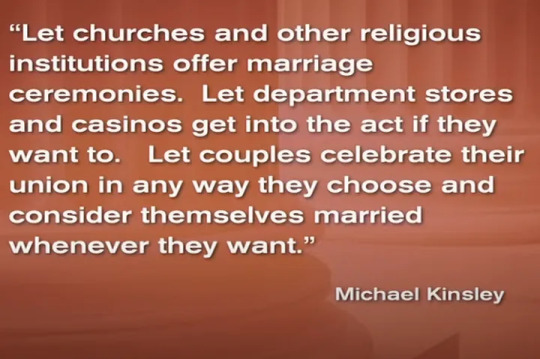
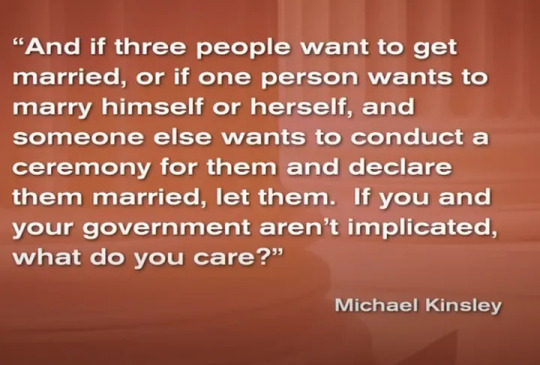

Is discussing the good life necessary to understand justice and rights? And, can we even have a rational debate about what constitutes a good life? These questions guide a deeper exploration into whether the government should define marriage’s purpose. while consensus on moral philosophical issues might be elusive, the ongoing debate is both inevitable and valuable. It serves as an essential process for understanding diverse values and fostering a richer appreciation of various perspectives within society.
Conclusion
The above article was written with keen observation of the lectures by Michael Sandel and gives the reader a well defined overview of the whole series in a summarized form . Enjoy :)
0 notes
Text
Toxic Hustle Culture
Hustle culture is based on the belief that you can only succeed in your life if you exert yourself to the point of sacrificing your sleep cycle and sanity . Quotes like "the grind never stops ","I don't make excuses", or "Hustle so hard , your bank account looks like a phone number " , hustle culture is a form of extreme workaholism. In a country like India , where we share opportunities and resources with 1.3 billion other people , the anxiety of being dispensable has converted the hustle culture to an especially toxic one.

From the multiple statistics and data available online ,children in India are taught to respect elders and act accordingly , since birth. There's a high chance that major life decisions of one born in India are influenced by his/her guardians in one way or the other. And this might sound problematic if you don't belong here but it pretty much is the reason for the growth of literacy rate in India . Parents are obsessive and possessive about their wards academic performance to an extent that they hardly allow one to follow heir own path.
The education system plays a significant role in perpetuating this culture, Students face immense pressure to excel academically and secure admission prestigious institutions. Long study hours , intense competition , and high expectations from parents and society contribute to an environment where burnout and stress related issues are prevalent.
In the corporate world, long working hours , constant deadlines, and intense competition are considered the norm. Employees often find themselves working late nights and weekends, sacrificing personal time and well-being. This culture can lead to chronic stress, exhaustion, and a lack of work-life balance.

Startups has also been a contributing factor to the norm of 'entrepreneurial mindset'. The fear of failure and pressure to succeed at any cost can create a hostile work environment. The consequences of toxic hustle culture in India are numerous. Physical and mental health issues such as stress, anxiety, depression, and burnout have become increasingly common. The lack of work-life balance affects personal relationships and overall well-being. Additionally, the pressure to conform to societal expectations can lead individuals to pursue careers they may not be passionate about, resulting in dissatisfaction and unhappiness.
It is crucial to strike a balance between hard work and personal well-being.It's high time we realise that the existing hustle culture can be detrimental to individuals' well-being and overall society. While hard work and dedication are important , it is equally essential to recognize the negative aspects of the culture and the potential harm it can cause.

Emphasizing the importance of self-care, work-life balance, and recognizing the value of importance of self-care, work-life balance, and recognizing the value of individuals beyond their productivity can foster healthier and more sustainable approaches to success.
ps - wrote it out of frustration
1 note
·
View note